Search
Search Results
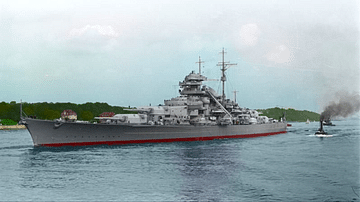
Image
Bismarck at Sea
A colourised version of a 1940 photograph of the German battleship Bismarck at sea. The ship was sunk in action in May 1941 in the Atlantic. (German Federal Archives)
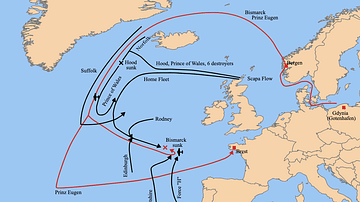
Image
Map of the Bismarck's Route
A map showing the route taken by the German battleship Bismarck prior to its sinking in May 1941.
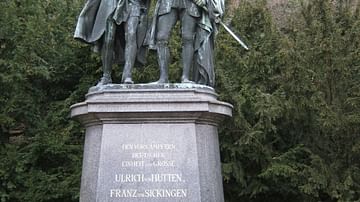
Image
Statue of Ulrich von Hutten and Franz von Sickingen
Statue of Ulrich von Hutten (l. 1488-1523) and Franz von Sickingen (l. 1481-1523), leaders of the Knights' Revolt of 1522-1523 in the Germanic territories of the Holy Roman Empire.
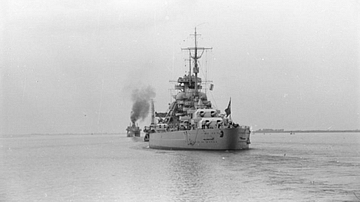
Image
Bismarck, Stern View
A stern view of the German battleship Bismarck which saw action and was sunk in 1941. (German Federal Archives)
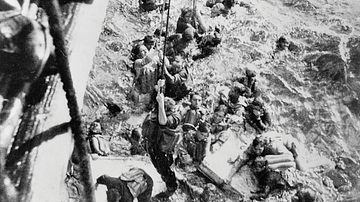
Image
Bismarck Survivors
A photograph of HMS Dorsetshire picking up survivors after the sinking of the German battleship Bismarck in May 1941 in the Atlantic. Only 110 men survived from a crew of over 2,000. (Imperial War Museums, London)

Definition
Frederick II
Frederick II (l. 1194-1250 CE) was the king of Sicily (r. 1198-1250 CE), Germany (r. 1215-1250 CE), Jerusalem (r. 1225-1228 CE), and also reigned supreme as the Holy Roman Emperor (r. 1220-1250 CE). He was born in Jesi in 1194 CE but spent...
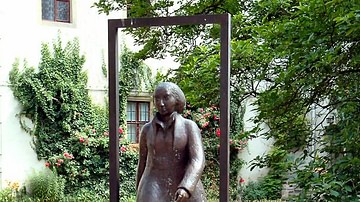
Article
Ten Women of the Protestant Reformation
Women played a vital role in the Protestant Reformation (1517-1648) not only by supporting the major reformers as wives but also through their own literary and political influence. Their contributions were largely marginalized in the past...
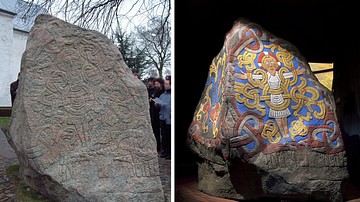
Article
Harald Bluetooth & the Conversion of Denmark
In Scandinavia, Christianity spread due to the support and encouragement of political rulers at the top of the society above all else. Conversion, defined here as the actions taken by kings or clerics to introduce the new religion, did not...

Definition
Beer Hall Putsch
The Beer Hall Putsch or Munich Putsch was a failed attempt by the German National Socialist (Nazi) Party to seize power, first of the Bavarian and then the German federal government on 8-9 November 1923. The coup, led by Adolf Hitler (1889-1945...

Definition
Holy Roman Empire
The Holy Roman Empire officially lasted from 962 to 1806. It was one of Europe’s largest medieval and early modern states, but its power base was unstable and continually shifting. The Holy Roman Empire was not a unitary state, but a confederation...